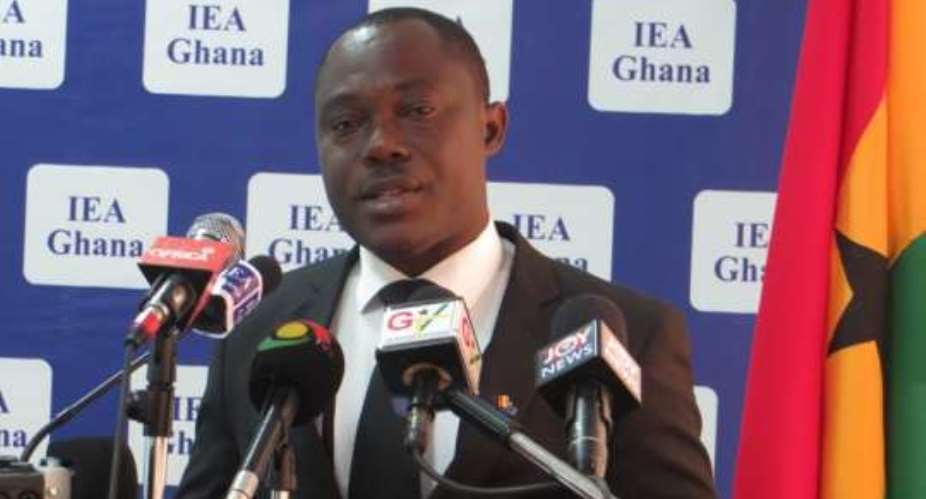Accra, June 25, GNA - Professor Ransford Gyampo, Senior Lecturer, University of Ghana, has advocated Parliamentary vetting and approval by two-thirds majority votes of all Members of Parliament for President's nominees for any appointment.
He said the current constitutional requirement of a simple Parliamentary majority vote was not good enough for Ghana's democracy; since anyone, the President nominates was likely to be approved by Parliament.
He said: 'As it stands now, there is an element of doubt, as to whether Parliament can reject the President's nominees, especially where the ruling party has the simple majority in Parliament.'
Prof Gyampo, who is also a visiting lecturer at the Institute of Economic Affairs, made the proposal in his presentation on the theme "Dealing with the Winner-Takes-All (WTA) Politics in Ghana: The Case for a Review of the President".
He said the way the Constitution gave overwhelming powers of appointment to the President and the overly partisan way and manner this power was being exercised was a manifestation of WTA politics.
He cited that the President had the power to make certain appointments with approval from Parliament such as Ministers and Deputy Ministers.
In addition, Prof Gyampo noted that the President could also make appointments in Consultations with Council of State and Approval of Parliament such as the Chief Justice and other Supreme Court Justices.
Article 78 (1) of the 1992 Constitution requires the 'prior approval' of Parliament for Ministers and Deputies Ministers nominated by the President.
On WTA and the challenge of wielding too much power, he said skewed and partisan appointments under WTA infested country without recourse necessarily to meritocracy.
He explained that this might lead to "square pegs in round holes', disastrous consequences for national development, brain drain and feeling of marginalization and polarization.
On real dangers in WTA politics, Prof Gyampo said the numerous appointing powers of the President and the way and manner it was being exercised promoted WTA politics, dissipated national brains needed for development, burdens President and slowed down governance and makes the President overbearing.
He also mentioned that it undermined constitutionalism, dents legitimacy of independent bodies and stalled work progress of crucial institutions.
Prof Gyampo called for the streamlining of the appointing powers of President and the election of all Metropolitan, Municipal and District Chief Executives to take some burdens from the President's shoulders.
He said appointments of people by the President to the various offices must be based on meritocracy and not on the roles they played leading to the ruling party's victory in the general election.
He said the Constitutional Review Committee (CRC) recommendation on the appointment of certain key officials of state, was a commendable recommendation ushering us into a regime of bipartisan acceptance and meritocracy in the selection of these officials.
He also recommended that, Presidents must reach out to the main opposition political parties in search of competent people to help govern the country; declaring that "the goal of national development must be a shared one".
Prof Gyampo said the appointment powers of the President must be streamlined and exercised in a manner that promoted inclusivity and meritocracy in the public service.
He explained that this would relieve the President of the work load and burden to appoint so many people into office.
"With this relief, the President can focus on other critical issues and areas of governance," he stated.
The function was chaired by Mr Emile Short, former Chairman, Commission on Human Rights and Administrative Justice (CHRAJ).
GNA
By Iddi Yire/Benjamin Hallo, GNA





 We’re disappointed over gov’t’s lacklustre attitude to negotiations of our condi...
We’re disappointed over gov’t’s lacklustre attitude to negotiations of our condi...
 No more Buffer Stock as Mahama promises to decentralise SHS food supply
No more Buffer Stock as Mahama promises to decentralise SHS food supply
 NSS urges President Akufo-Addo to sign National Service Bill into law
NSS urges President Akufo-Addo to sign National Service Bill into law
 You're lying, your 7-11pm dumsor attributed to overloaded transformers is false ...
You're lying, your 7-11pm dumsor attributed to overloaded transformers is false ...
 Consult Council of State on anti-gay bill – Mahama advises Akufo-Addo
Consult Council of State on anti-gay bill – Mahama advises Akufo-Addo
 Transport Ministry has no power to determine fares – COPEC
Transport Ministry has no power to determine fares – COPEC
 Brace yourselves for more economic hardship – Prof Adei to Ghanaians
Brace yourselves for more economic hardship – Prof Adei to Ghanaians
 Any government depending on IMF is likely to fail – Grand Coalition
Any government depending on IMF is likely to fail – Grand Coalition
 Ghana risks losing premium cocoa position due to galamsey – COCOBOD laments
Ghana risks losing premium cocoa position due to galamsey – COCOBOD laments
 Akufo-Addo launches NSS policy document to tackle under-utilisation of service p...
Akufo-Addo launches NSS policy document to tackle under-utilisation of service p...
